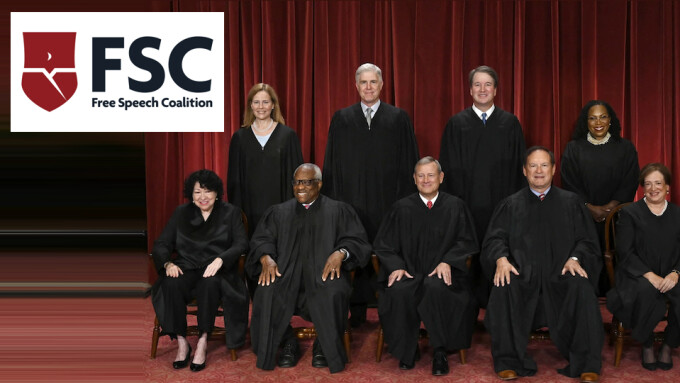WASHINGTON — The U.S. Supreme Court has denied a request by Free Speech Coalition (FSC) and other plaintiffs to stay Texas’ controversial age verification law while the court decides on a petition that would effectively overturn it on constitutional grounds.
On Tuesday, the Supreme Court denied the petition to stay without offering further comments or any explicit dissents.
The group of plaintiffs is represented by the American Civil Liberties Union and the law firm Quinn Emanuel Urquhart & Sullivan. They argue that Texas’ HB 1181, if left standing, would improperly burden free speech online.
FSC Director of Communication Mike Stabile told XBIZ, "While the Supreme Court has denied our application to stay the Fifth Circuit’s decision upholding age verification requirements in Texas, our petition for full merits review before the Supreme Court remains pending. We look forward to continuing this challenge, and others like it, in the federal courts. The ruling by the Fifth Circuit remains in direct opposition to decades of Supreme Court precedent, and we remain hopeful that the Supreme Court will grant our petition for certiorari and reaffirm its lengthy line of cases applying strict scrutiny to content-based restrictions on speech like those in the Texas statute we’ve challenged. We will continue to fight for the right to access the internet without intrusive government oversight."
Vera Eidelman, staff attorney with the ACLU Speech, Privacy and Technology Project said, “Though it purportedly seeks to limit minors’ access to online sexual content, the law in fact imposes significant burdens on adults’ access to constitutionally-protected expression, requiring them to provide personal identifying information online to access sensitive, intimate content.”
Eidelman added, “This is not the first time that concerns about minors’ access have led legislators to pass unconstitutional laws. We’ve gone through this time and again, with everything from drive-in movies to video games to websites, and courts have repeatedly struck down laws imposing requirements that burden adults’ access to non-obscene sexual content in the name of protecting children.”







